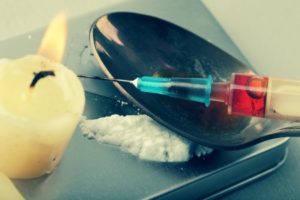 If a defendant raises the OPA immunity at time of a jury trial and the issue poses a factual dispute as to its applicability, the jury should be provided with instructions explaining the elements of the statute.
If a defendant raises the OPA immunity at time of a jury trial and the issue poses a factual dispute as to its applicability, the jury should be provided with instructions explaining the elements of the statute.
A somewhat more difficult procedural uncertainty relates to identifying who is to resolve factual disputes arising under the immunity’s applicability: the court, a grand jury, or a trial jury? Such factual disputes may, for example, involve whether the subject exhibited at the time of the call an “acute condition” and manifested a “physical illness” caused by CDS consumption, or whether a layperson would “reasonably believe” the subject “requires” medical assistance; or whether the call for assistance was made in “good faith.” We suspect that in some cases these questions are readily answered by the review of documents, such as police reports or grand jury testimony, and will pose no genuine issues of disputed fact. However, in other instances the documentary record may be incomplete or inconclusive.
We do not adopt the view that a grand jury considering evidence of illegal drug offenses must always be told, in every case where a defendant had received medical assistance, about proofs relating to that defendant’s possible OPA immunity and given a charge explaining the immunity. If, for example, the immunity clearly does not apply on the facts, then such proof would not be exculpatory and there would be no obligation to present such evidence to the grand jurors or to instruct them about the OPA.
In other circumstances where the OPA’s application is less clear cut, we believe the well-established general principles for grand jury practice should be followed. The Court in Hogan acknowledged that grand jurors should be advised of “clearly exculpatory” proof that “directly negates” a prospective defendant’s guilt. In addition, the circumstances may require the grand jurors to be charged as to specific exculpatory defenses. It is only when the facts known to the prosecutor clearly indicate or clearly establish the appropriateness of an instruction that the duty of the prosecution arises.” Even so, the Supreme Court also cautioned in Hogan that an indictment should be dismissed on that basis only in “rare” situations, and that “courts should act with substantial caution before concluding that a prosecutor’s decision to not present certain allegedly-exculpatory proofs was erroneous.” To borrow a common phrase, the proofs of the immunity’s applicability must be so apparent as to be “jumping off the page.”
We thus see the tone of the Court’s opinion change from foreshadowing the broad bases for dismissal to foreshadowing a narrower reading of the Overdose Prevention Act’s immunity. The Court seems to overlook the significance of an indictment as far as the stress it causes the accused and the costs associated with hiring competent counsel to defend against the charge(s) at a point where the case will be rapidly moving towards trial, especially for incarcerated defendants.
